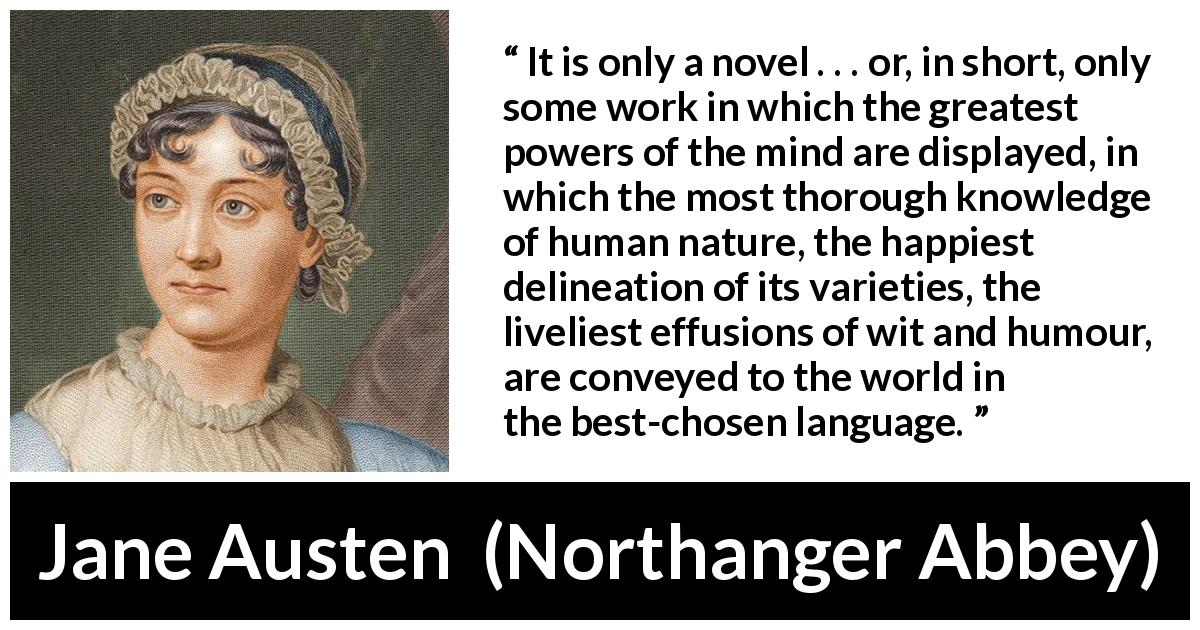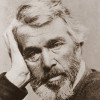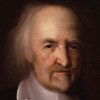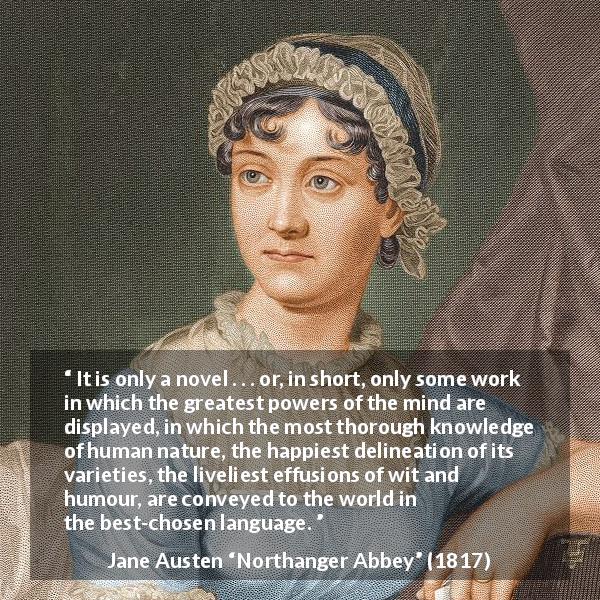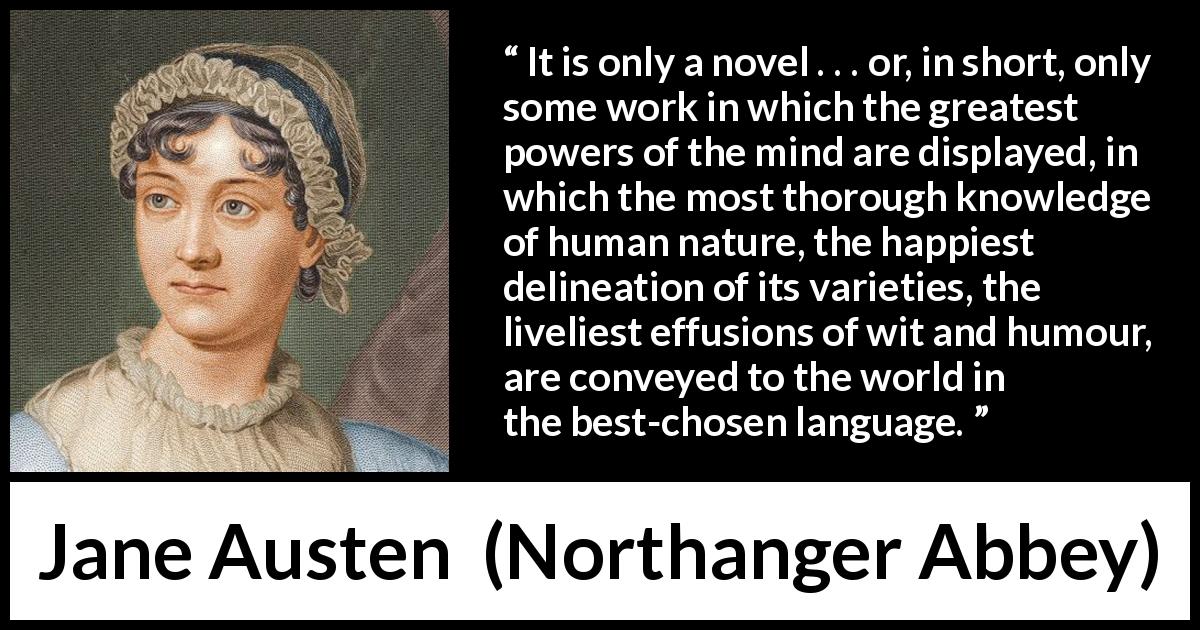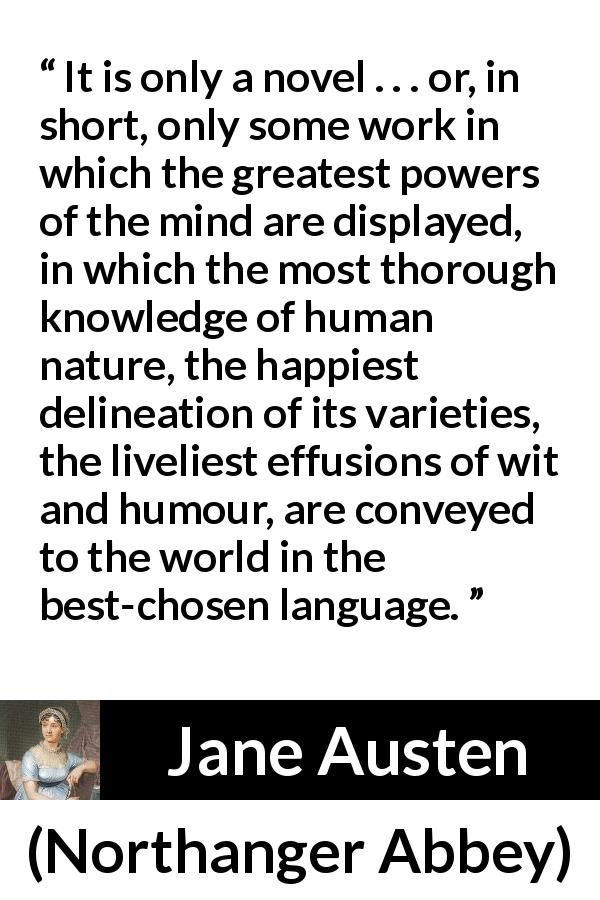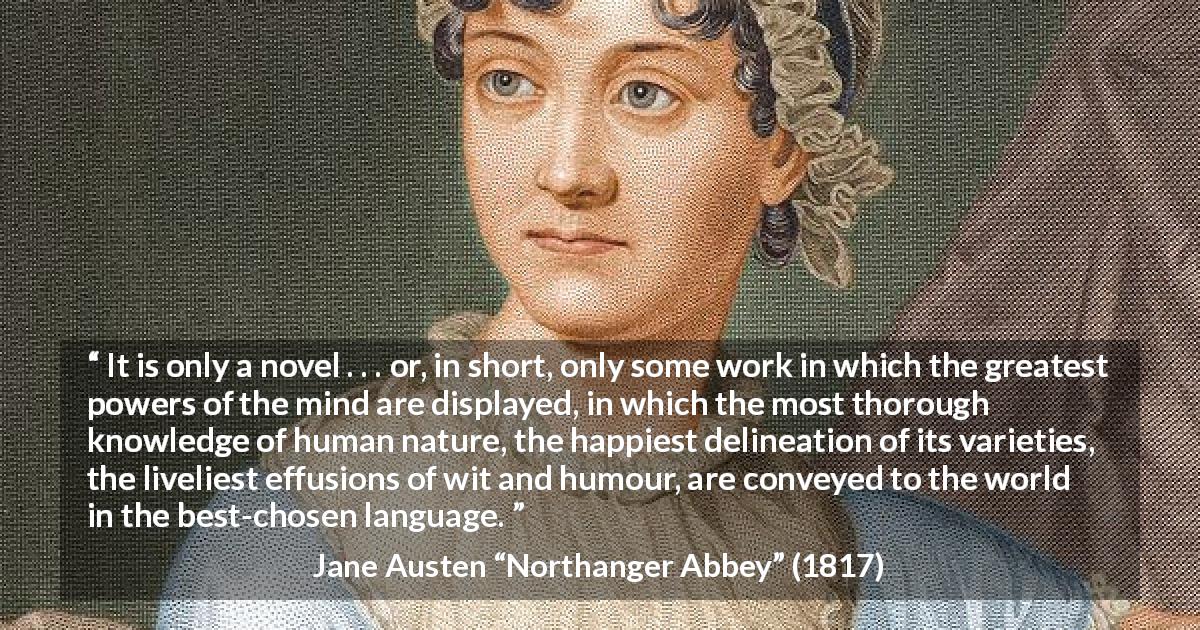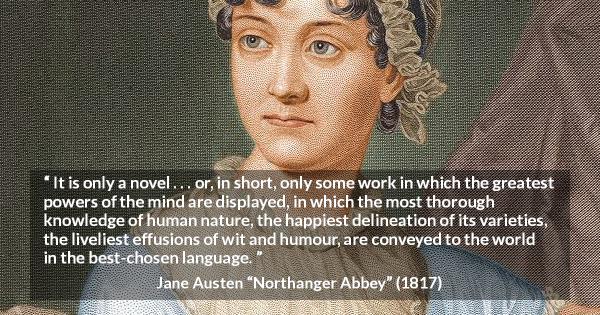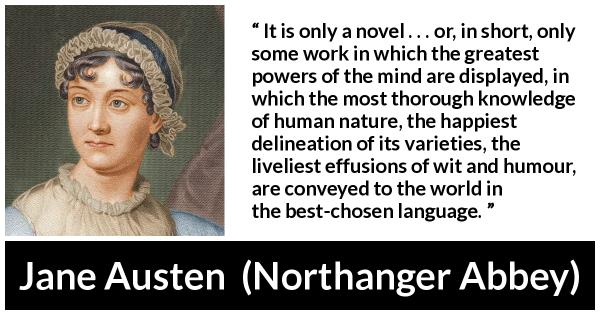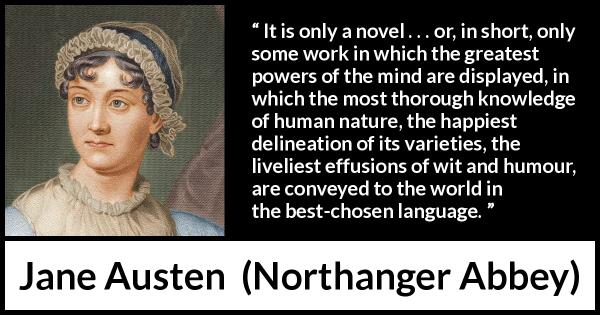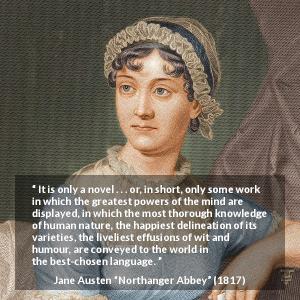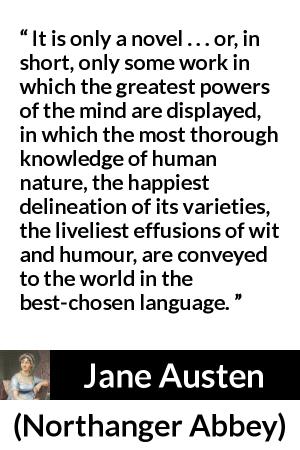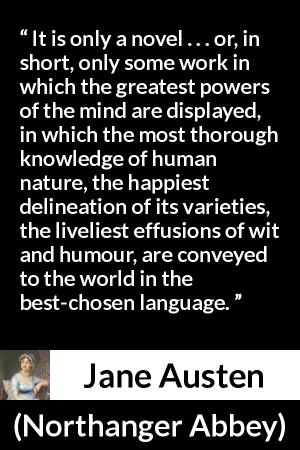“ It is only a novel . . . or, in short, only some work in which the greatest powers of the mind are displayed, in which the most thorough knowledge of human nature, the happiest delineation of its varieties, the liveliest effusions of wit and humour, are conveyed to the world in the best-chosen language. ”
Jane Austen, Northanger Abbey (1817). copy citation
| Author | Jane Austen |
|---|---|
| Source | Northanger Abbey |
| Topic | human nature reading wit novel |
| Date | 1817 |
| Language | English |
| Reference | |
| Note | |
| Weblink | http://www.gutenberg.org/files/121/121-h/121-h.htm |
Context
“«I am no novel-reader—I seldom look into novels—Do not imagine that I often read novels—It is really very well for a novel.» Such is the common cant. «And what are you reading, Miss—?» «Oh! It is only a novel!» replies the young lady, while she lays down her book with affected indifference, or momentary shame. «It is only Cecilia, or Camilla, or Belinda»; or, in short, only some work in which the greatest powers of the mind are displayed, in which the most thorough knowledge of human nature, the happiest delineation of its varieties, the liveliest effusions of wit and humour, are conveyed to the world in the best-chosen language. Now, had the same young lady been engaged with a volume of the Spectator, instead of such a work, how proudly would she have produced the book, and told its name; though the chances must be against her being occupied by any part of that voluminous publication, of which either the matter or manner would not disgust a young person of taste: the substance of its papers so often consisting in the statement of improbable circumstances, unnatural characters, and topics of conversation which no longer concern anyone living; and their language, too, frequently so coarse as to give no very favourable idea of the age that could endure it.”
source
